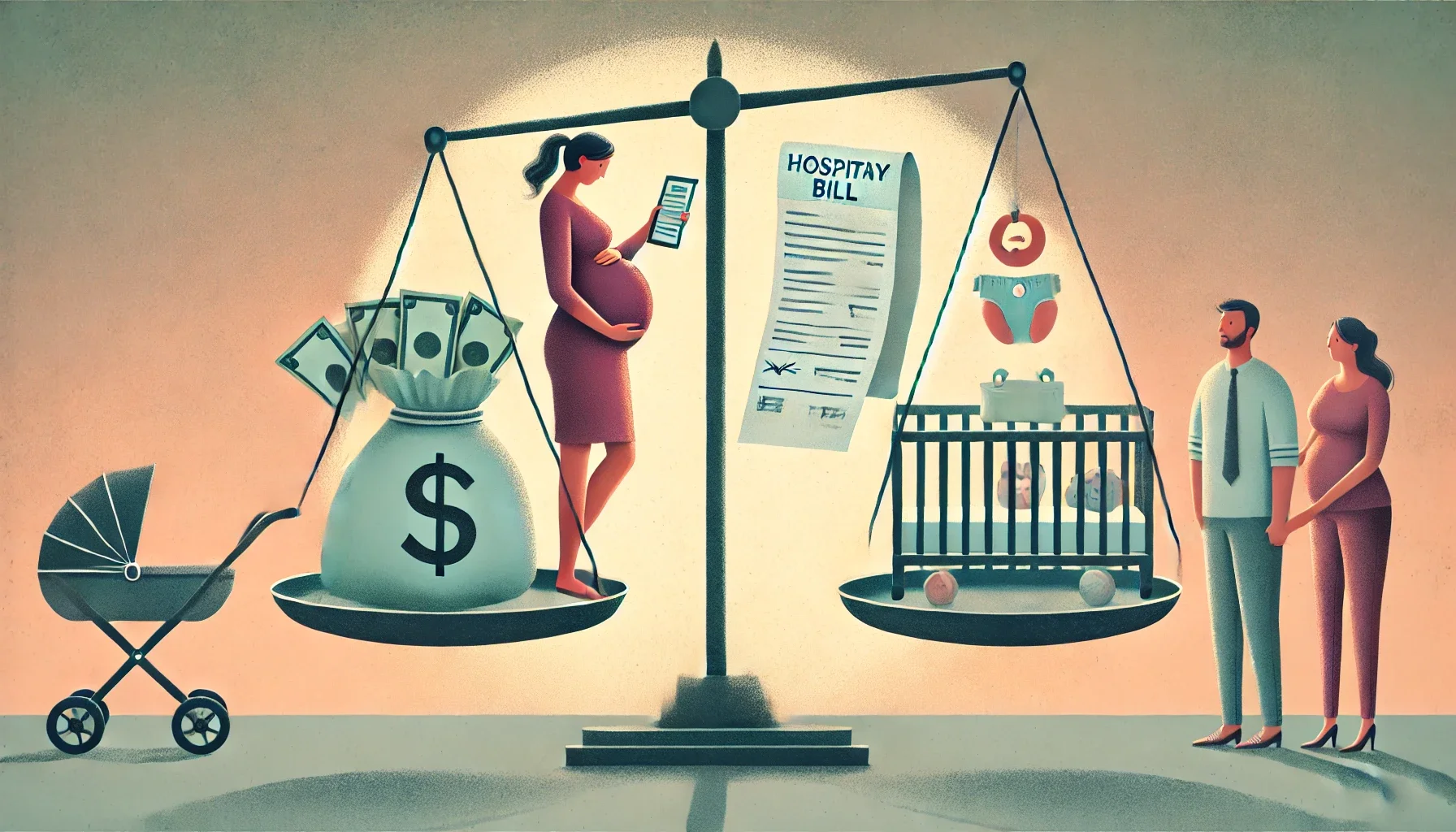Prepaying Your Baby’s Birth? New Healthcare Provider Trend Highlights Rising Costs and Financial Impacts for Patients, Families

Posted in Blog What's New | Tagged GeorgetownUniversity, health finance, health insurance, healthcaredebt, healthcarepayer, infantcare, insurance, maternity, Medicaid, medicaldebt, Medicare, motherhood, pregnancy
- Carol B. Davis, PhD, MBA, Asociate Director, HCFI
- January 10, 2025
A recent article by KFF Health News highlighted a growing trend in maternity care: Pregnant individuals are being asked to prepay thousands of dollars for prenatal and delivery services
before their due dates.i
While providers argue that prepayment ensures compensation for their work, many patients
believe this practice adds unnecessary stress and anxiety to what should be a joyous and
hopeful time.
The financial realities of having a baby in the United States are sobering. The average cost of
childbirth is about $19,000, which includes prenatal care, labor, and delivery.ii
Fortunately, most families have some type of health insurance and are not responsible for the
full bill, but even out-of-pocket expenses can climb into the thousands.iii For context, the median
annual income for U.S. households under age 65 in 2023 was $54,000.iv For single mothers, the
median income was just $40,000.v
This means that, for many families, the cost of childbirth—even with insurance—represents a
significant portion of their annual income. Indeed, according to a 2022 KFF poll, of the 100
million U.S. people reporting healthcare debt, 12% say at least some of it is due to maternity
care.vi
This financial burden is compounded by unpredictable insurance structures such as bundled
billing, which group all maternity-related care into a single claim. This system often leaves
families unsure of what their final out-of-pocket costs will be until after the birth.vii Prepayment
demands only exacerbate this uncertainty, especially if complications arise or if patients need to
switch providers mid-pregnancy.
Medicaid plays a vital role in alleviating these costs, covering nearly 40% of U.S. births.viii
While those eligible for Medicaid are largely protected from the direct costs of maternity care,
they may face challenges finding providers willing to accept Medicaid patients due to lower
reimbursement rates. For families just above Medicaid eligibility or those navigating high-
deductible health plans, however, the financial strain remains overwhelming.
The process for paying for maternity care will remain significantly burdensome as long as the
cost of care remains disproportionate to the income of most pregnant people and families. For
many, the issue isn’t just how they are asked to pay—it’s the sheer size of the bill.
If you don’t have, and won’t have, the average $3,000 cash by the time your baby arrives, no
payment plan can make the financial burden feel manageable. Until we address this
fundamental disparity, patient-centered maternity care will continue to feel less like a basic
medical service and more like an unattainable luxury for many families.
References
i “Pay First, Deliver Later: Some Women Are Being Asked to Prepay for Their Baby.” Renuka Rayasum. Nov. 14, 2024. KFF Health News. Accessed December 19, 2024 at https://kffhealthnews.org/news/article/pregnancy-maternity-care-prepayment-billing-insurance.
ii “Health Costs Associated with Pregnancy, Childbirth, and Postpartum Care.” July 13, 2022. Peterson-KFF Health System Tracker. M. Rae, C. Cox , and H. Dingel. Accessed Dec. 19, 2024: https://www.healthsystemtracker.org/brief/health-costs-associated-with-pregnancy-childbirth-and-postpartum-care/#Average%20additional%20health%20spending%20associated%20with%20pregnancy,%20relative%20to%20women%20of%20the%20same%20age%20who%20do%20not%20give%20birth,%20among%20people%20with%20large%20employer%20coverage,%202018%20-%202020
iii Ibid. Also based on average cost data cited in Motherly and related maternity cost analyses.
iv U.S. Census Bureau, Household Income Data, 2023.
v Ibid.
vi Lisa Satterfield, American College of Obstetricians and Gynecologists, quoted in “Pay First, Deliver Later: Some Women Are Being Asked to Prepay for Their Baby.” Nov. 15, 2024. KFF Health News.
vii “Health Care Debt in the U.S.: The Broad Consequences of Medical and Dental Bill.” L. Lopes, A. Kearney, A. Montero, L. Hamel, and M. Brodie. June 16, 2022. KFF Health News. Accessed Dec. 19, 2024: https://www.kff.org/report-section/kff-health-care-debt-survey-main-findings.
viii Medicaid eligibility for pregnant individuals varies by state and can range from 138% to as high as 324% of the Federal Poverty Level. While Medicaid provides crucial financial protection, access to providers can still be challenging for some enrollees. Sources: Medicaid and CHIP Payment and Access Commission (MACPAC) and KFF Health News.
